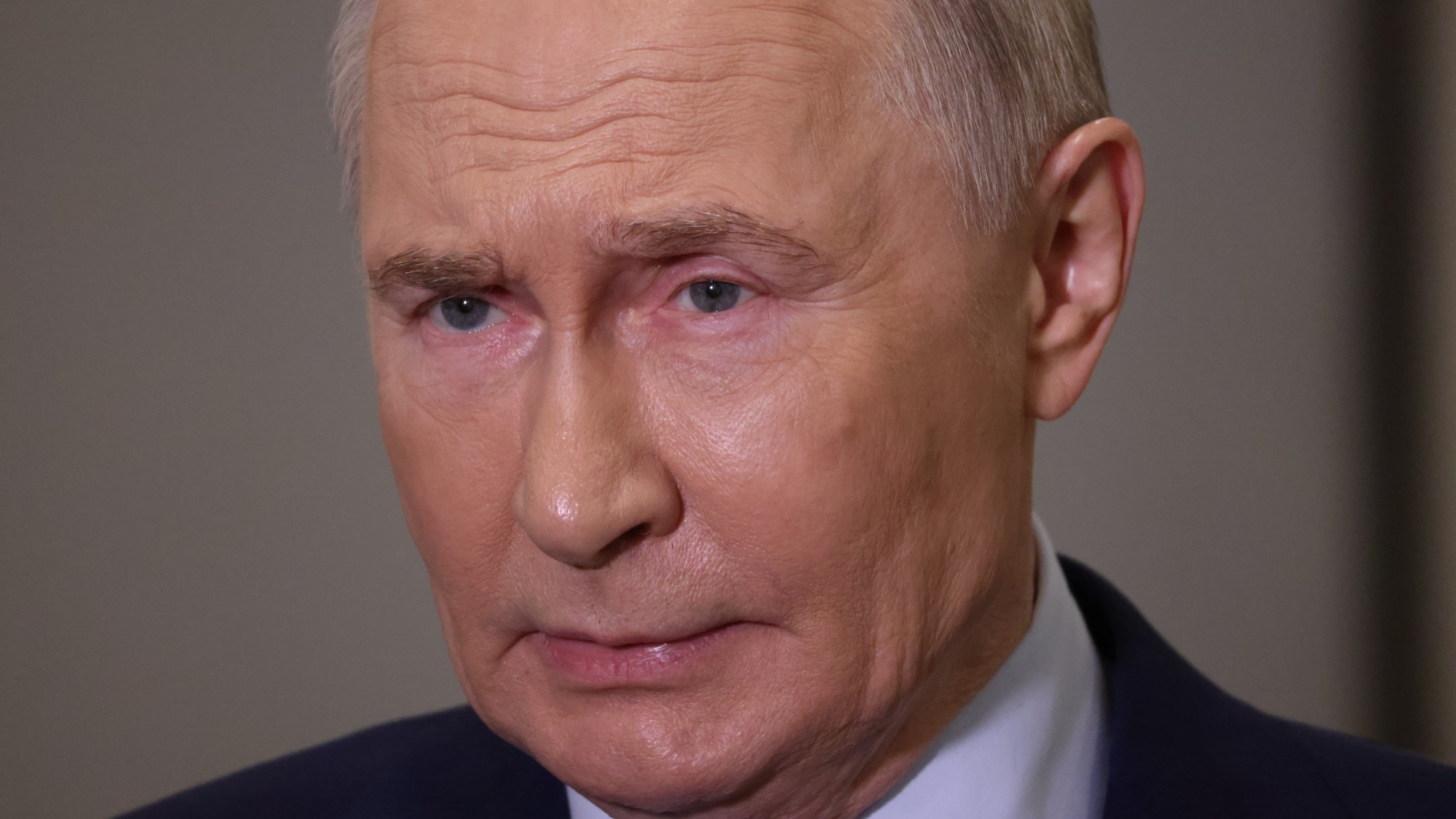Russian central bank doubles interest rates to 20 percent as ruble crashes amid mounting sanctions

A free daily email with the biggest news stories of the day – and the best features from TheWeek.com
You are now subscribed
Your newsletter sign-up was successful
The Russian central bank more than doubled interest rates Monday, to 20 percent from 9.5 percent, in a emergency move to try and stabilize the plummeting ruble, which dropped more than 30 percent Monday, to its lowest rate ever against the dollar.
The U.S., Europe, and other nations moved over the weekend to freeze Russia's hard-currency reserves, cut off some of its largest lenders from the SWIFT global payment system, crack down on Russian oligarchs and their assets, and enact other punitive sanctions to punish Russia for invading Ukraine. Russians have rushed to ATMs to withdraw cash, and Russia's central bank said Monday's rate increase was designed to support "financial and price stability and protect the savings of citizens from depreciation." Losing access to much of its $640 billion in foreign reserves limits the bank's options.
"Put simply, Russia's ability to transact with any financial institution at a global level will be severely impaired, because most international banks across any jurisdiction use SWIFT," Deutsche Bank analyst George Saravelos wrote in a note to clients.
The Week
Escape your echo chamber. Get the facts behind the news, plus analysis from multiple perspectives.

Sign up for The Week's Free Newsletters
From our morning news briefing to a weekly Good News Newsletter, get the best of The Week delivered directly to your inbox.
From our morning news briefing to a weekly Good News Newsletter, get the best of The Week delivered directly to your inbox.
South Korea and, notably, Singapore joined the global efforts to isolate Russia from global finance and trade on Monday. Norway on Sunday said its $1.3 trillion oil-based sovereign wealth fund is freezing its Russian assets and divesting from the country, and BP said it would divest its 20 percent stake in Russian state oil company Rosneft. S&P Global cut Russia's debt rating to "junk" status on Friday, and the sanctions have only gotten harsher since then.
Whatever Russian President Vladimir Putin hoped to accomplish with his Ukraine invasion, it's probably not this: financial chaos, domestic protests, a lockstep NATO, Germany shedding its post–World War II pacifism, and what appears to be, from all indications, a failed strategy of storming into Kyiv and overthrowing Ukraine's government. "Russia is actually showing the world they are not as strong as we thought they were," John Spencer, an Army veteran and urban warfare expert, tells The Washington Post. "It's not showing a superpower military, that's for sure. It's showing major weakness."
But Putin has also responded by escalating nuclear tensions, and his much larger and better equipped army is expected to adapt tactics and ramp up its destructive force against Ukraine. Which is something to keep in mind as you watch Russia's economy crumble, notes the Post's Paul Sonne.
A free daily email with the biggest news stories of the day – and the best features from TheWeek.com
Peter has worked as a news and culture writer and editor at The Week since the site's launch in 2008. He covers politics, world affairs, religion and cultural currents. His journalism career began as a copy editor at a financial newswire and has included editorial positions at The New York Times Magazine, Facts on File, and Oregon State University.
-
 The problem with diagnosing profound autism
The problem with diagnosing profound autismThe Explainer Experts are reconsidering the idea of autism as a spectrum, which could impact diagnoses and policy making for the condition
-
 What are the best investments for beginners?
What are the best investments for beginners?The Explainer Stocks and ETFs and bonds, oh my
-
 What to know before filing your own taxes for the first time
What to know before filing your own taxes for the first timethe explainer Tackle this financial milestone with confidence
-
 TikTok secures deal to remain in US
TikTok secures deal to remain in USSpeed Read ByteDance will form a US version of the popular video-sharing platform
-
 Unemployment rate ticks up amid fall job losses
Unemployment rate ticks up amid fall job lossesSpeed Read Data released by the Commerce Department indicates ‘one of the weakest American labor markets in years’
-
 US mints final penny after 232-year run
US mints final penny after 232-year runSpeed Read Production of the one-cent coin has ended
-
 Will latest Russian sanctions finally break Putin’s resolve?
Will latest Russian sanctions finally break Putin’s resolve?Today's Big Question New restrictions have been described as a ‘punch to the gut of Moscow’s war economy’
-
 Warner Bros. explores sale amid Paramount bids
Warner Bros. explores sale amid Paramount bidsSpeed Read The media giant, home to HBO and DC Studios, has received interest from multiple buying parties
-
 Gold tops $4K per ounce, signaling financial unease
Gold tops $4K per ounce, signaling financial uneaseSpeed Read Investors are worried about President Donald Trump’s trade war
-
 Electronic Arts to go private in record $55B deal
Electronic Arts to go private in record $55B dealspeed read The video game giant is behind ‘The Sims’ and ‘Madden NFL’
-
 New York court tosses Trump's $500M fraud fine
New York court tosses Trump's $500M fraud fineSpeed Read A divided appeals court threw out a hefty penalty against President Trump for fraudulently inflating his wealth
